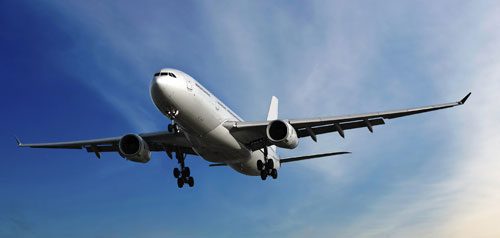If you are traveling to South Africa for a hunt from the US, it can be a daunting undertaking the first time you do it, but if you have all of the correct information there is no need to worry. Here is what you need to know for your upcoming African Safari.
Rules, Regulations, Forms and Tips for Traveling to South Africa
- For South Africa travel, visitors are required to carry a passport that is valid for six months beyond the intended length of stay.
- There should be sufficient blank pages on your passport for entry stamps upon arrival.
- Visas are not required for citizens from USA, UK, Canada, France, Germany and Spain.
- Visitors can stay for a maximum of 90 days. You may be requested to show a return ticket.
- We highly suggest that you PURCHASE TRIP INSURANCE for any International trip.
Listen to this Podcast on Planning Your First African Safari
What You Can Bring to South Africa
You are entitled to import into South Africa a personal allowance of 400 cigarettes, 50 cigars, 9 ounces of pipe tobacco, two liters of wine, one liter of alcohol, other gifts up to a value of R500 and any amount of foreign currency as long as you declare amounts over $20,000 to customs upon arrival.
Luggage, Ammo and Gun Cases
- Luggage: Traveling to Africa used to allow 70 pounds of luggage bag, but they keep lowering that. We recommend using the lightest, and fewest items of luggage you can find. Remember, you will almost always have a daily laundry service.
- Ammo: Airline regulations state that you can only take a maximum of 5 KG (11 lbs) of ammo per passenger, and that the ammo must be in its original box. Ammo is also “supposed” to be in a separate luggage, but every once in a while, an airline decides they want it in the locked gun case…. go figure.
- Gun Cases Use only good aluminium cases
. No plastic. They will take a beating, and only aluminum can stand the punishment. Also, only 2 guns per case are allowed, and they also must be less than 50 pounds.
- Tips:
- Don’t put things like binoculars and cameras in an unlocked luggage bag. Put binos in your gun case, and carry your camera with you.
- Don’t take the bolt out of your rifle and put it in your carry on bag. When a bolt and with its handle goes thru X-ray, it looks like a pistol, and guess what that will get you at an airport? Take the bolt out of the gun, but leave it in the gun case.
- Don’t try and take an EXTRA riflescope or range finder
.
- Please mark your gun case clearly with your name, address and contact number.
South Africa Firearms Import Permit
Sporting firearms may be readily imported into South Africa. You may bring up to three firearms per hunter (however most airlines limit you to 2) and 200 rounds of ammo per firearm but again airline regulations allow only 5 kg or 11 lbs of ammo per passenger. The average weight of factory loaded ammo boxes of 20 shells per box runs from 1 lb 4 ounces to 2 lbs.
Prior to the day of your flight you will need to take a trip down to the local Customs Office (usually located at all international airports) and get a Form 4457 (Certificate of Registration of Personal Effects Taken Abroad). These Custom Offices are normally open 9 – 5, Monday – Friday, but it would be best to call before you go to ensure that there will be somebody available to assist you. When you go, take the guns that you will be taking to Africa with you, this is required for bows as well.
This is a very easy procedure. They will sign a customs form that includes the manufacturer, model and serial number of each firearm. The reason for this form is to show the US Customs people when you return to the USA that you owned the guns prior to your departure and that you are bringing back the same guns that you took out of the country. Be sure to have that form available on your return. Since the United States does not require your sporting rifles to be registered you must have this form to show the South African police. This will suffice as proof of ownership for the required SAP Form 520 that will be discussed below.
- You need to get a letter of invitation to come on a hunt from your PH prior to traveling to South Africa. As hunting consultants, we can help with that. Also, check your passport and make sure it is current. Some countries have goofy expiration rules, as we recently found out, for South Africa visitors are required to carry a passport that is valid for six months beyond the intended length of stay. So do your research!
- You will need proof of ownership for your guns.
- Don’t book your flight online. There are seldom bargains and we recommend having someone to help you if there are problems. If you do book your tickets online, you could also have trouble with any extra flights within Africa and you will have trouble booking inexpensive add-on tickets from your hometown to your jump-off destination.
- Use a quality hunting consultant or booking agency to book your hunt and help you with getting prepared for your upcoming hunt.
- Get trip insurance!
- Go to a US Customs office and get your Firearms listed on a Form 4457 called “Certificate Registration for Personal Effects Taken Abroad”. U.S. Customs Form 4457 must be completed and stamped in the USA before boarding your flight to Africa. It proves ownership of personal items, such as rifles, taken out of the country. *You will need this Form upon arrival in Africa, AND upon return to the US.
- You will also need to fill out an application form for the South African Police Service. This form has proof of ownership for your guns and a letter of invitation from your outfitter.
Flying with Children
If you are flying to, from or transiting through South Africa with a child under 18 years of age, you will have to adhere to these rules.
- If only ONE parent is travelling with the child – Where only one parent is accompanying the child, the following has to be presented:
- an unabridged birth certificate (full)
- consent in the form of an affidavit from the other parent registered as a parent on the birth certificate, authorizing them to enter or depart from South Africa with the child
- a court order granting them full parental responsibilities and rights or legal guardianship or where applicable, a death certificate of the other parent registered as a parent of the child on the birth certificate.
- You should travel with these documents in case you are asked to provide them.
- There are additional rules for adults travelling with a child who is not their biological child, and for children travelling alone. For more information go to South African High Commission website.
Options for Flying from US to South Africa
- Fly from your nearest airport to Washington D.C. Dulles Airport connecting to South African Airways (SAA) non-stop to Johannesburg South Africa. This flight leaves at 5:50 PM every night, so there is plenty of time to get to DC to make the connection.*Important: Leave a minimum of two hours between your arrival in Dulles, JFK or Atlanta and your departure time. Sometimes, luggage will arrive, but not the guns. This is because guns are handled differently, and it just takes more time. If you arrive at Johannesburg without your guns and you have a connecting flight to another South African Airport or to Namibia, Botswana, or even Zimbabwe, you have a problem. The airport will not forward your guns like they do your luggage in the USA. You need to get gun permits (or transit permits) upon arrival, and you must be there to do it. To make this process easier, we recommend a service such as Hunters Support. They will meet you at the airport in South Africa and handle things from there.
- Go to New York’s JFK airport and take SAA from there direct to Johannesburg with only a stop for fuel in Dakar Senegal.
- Go to Atlanta, and take the Delta flight directly to Johannesburg with also a fuel stop in Dakar.
- Some folks feel it is better to go via Europe. The problem with this though, is that you fly all night from the US to Europe, and then sit all day in the airport as their flights leave at night again. Some folks prefer to get a day room and break up the trip. Whatever suits your taste or budget. (If you are flying from the United States to Namibia, this option is our recommendation.)*You will need an additional firearms permit if you want to leave the airport and go to a hotel.
- Fly Emirates through Dubai. we took this option on our last safari, and while it was less expensive, one person in our party had issues with his rifle. Make sure that you follow their firearms procedures and have a long layover in Dubai to deal with any issues that come up.
Entry Into South Africa
Upon arrival in South Africa you must have filled out a SAP Form 520 for the South African Police in order to receive a temporary firearm import permit to be issued to you. A step-by step guide for you to follow upon arrival in Johannesburg is included below:
- Sign for your firearms in the area just to the right of where you walk into the baggage claim area. After collecting your luggage you will then proceed through the Red Channel area of customs, as you must declare your firearms (even though they will not be with you at this point as they have been delivered to the South African Police Office).
- Depart the customs area to the right and proceed out to the general meeting area. Walk straight ahead to the corridor (there is a sign up above to indicate the corridor where the SAP office is located) and turn right. The location of the SAPS office will be just ahead and to the right.
- Enter this office with all of the paperwork that is required and tell them that you are going to be hunting and you need to claim your firearms and obtain a temporary firearm import permit.
- You need to show proof that the rifle belongs to you. The U.S. customs registration Form 4457 you obtained prior to departure can be used for this. Completion of Form SAP 520 will then take place. This form details your address, rifle make, type and serial numbers as well as the amount of ammunition imported.
- They will then issue you a Temporary Import Permit. You must retain a signed copy of this permit and it must be in your possession while you are hunting.
*You will need to present this copy on your departure from South Africa. There is no charge for doing any of this, although we have heard of visitors who were asked to pay. If you ask for a receipt for this charge you will probably be told, “The receipt book is full, so this time there is no charge”.
Your PH should provide all of the necessary forms required for obtaining your temporary firearms permit. Anyone can go through this procedure on their own upon arrival in South Africa and there is no cost for doing this. Some people may be uncomfortable in doing this on their own and there are some companies that are available for assistance in obtaining your permit. One of these companies that we recommend is Riflepermits.com. There is a charge for their services and if you decide to use them, allow plenty of time before your safari in order to send them the necessary paperwork that they require.
Further information is available from the Central Firearm Registry, South African Police Services; telephone number 27-12-3536057, fax number 27-12-3536041. All firearms brought into the country must be taken out with the visitor when they depart. It is illegal to leave any firearm behind.

Travel within South Africa
South Africa is geared towards travel by air and road with an extensive network of well-maintained paved roads and many domestic, as well as private charter airline services. Most parts of the North West Province are easily accessible via a well-constructed road network. Major highways are paved as are most roadways around metropolitan areas; however rural roads are seldom paved. Any valid drivers license is accepted in South Africa provided it bears the photograph and signature of the holder and is printed in English. Contrary to driving in the U.S., driving in South Africa is done on the left.
- There are three International Airports in South Africa; Johannesburg, Cape Town and Durban.
- Here are a few more things to consider prior to booking your trip to South Africa.
- We hope this information will help you ensure a smooth journey. Travel safe. We will see you soon in Africa.
On Your Return Trip to US
Now you will again need to go thru all the “hoops” and get yourself, your luggage, and guns on the right plane home. Luckily, if you are going thru Europe, it’s not that hard. Check all your guns and luggage all the way back to the USA. They will usually put tags on your items all the way to your home airport. However, you will need to collect your luggage and guns upon arrival in whatever city you arrive in, and clear US Customs. Now is when you really want to have your Customs form 4457 that you procured before you left. The US Customs folks want to see that Form and the firearms that match it upon arrival.
More about Customs Form 4457: Put only one Firearm per Form 4457. Don’t mix and match them. It only confuses the agents and makes this go slower than they already go.
NOTE: Washington’s Dulles International Arrivals is slow. Atlanta is much better and New York JFK is not too bad either.
- After clearing Customs, they will tell you where to put your luggage and guns so that they can be sent to the next connecting flight to your home.
- About missing guns and insurance: If, when you arrive in the US, or your home airport, your guns are missing, file a lost luggage claim with your arriving airline, and now, is when you really wish you have purchased trip insurance. Don’t depend on your Homeowners Insurance to cover you. Unless you have a specific Rider attached to your policy, odds are your guns are not covered in entirety.




I really like the look of your site.
Thank you.
Need to remind travelers returning to the states to wash their boots before flying back. Customs almost always flags hunters for Agriculture inspection because they consider the hunting land like farms. Your boots have to be clean to prevent the spread of disease among cattle, and clean boots will get you through much more quickly.
Pingback: Flying Via Emirates to Africa | Pre-Approval Process
Pingback: Africa is One of the Coolest Places in the World!